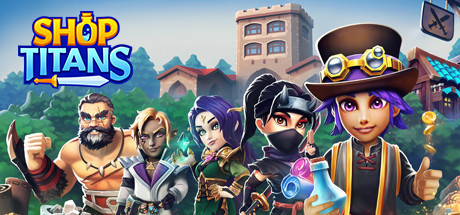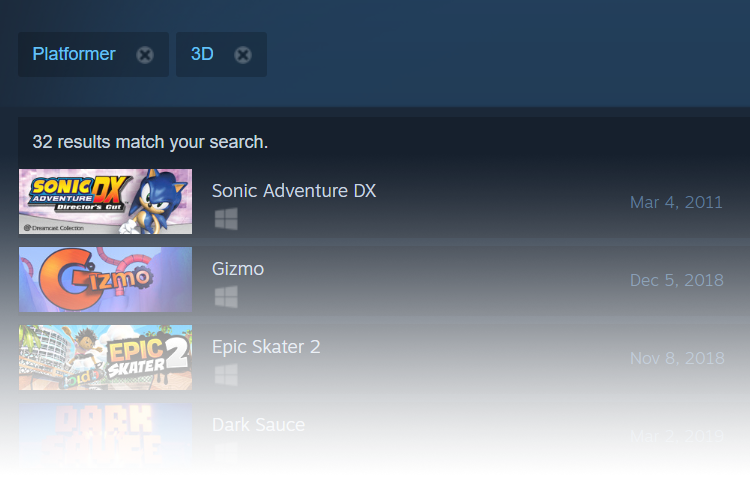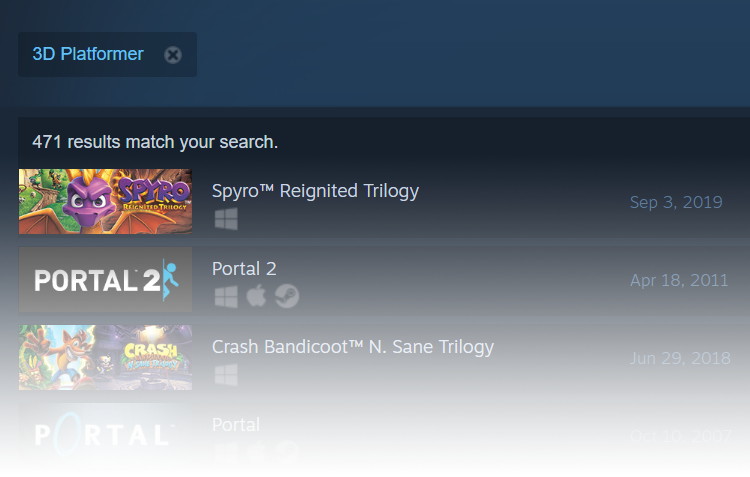
Jun 23, 2020
Steam News - AndrewL

We're continuing our Top Release series with a look at games released in the month of May. While the month brought dozens of exciting new games to Steam, these are the Top 20 titles that stood above the rest. As always, we gather the Top 20 by looking at revenue generated by each product during the first two weeks after its release. We're also showcasing the Top 5 free-to-play games released in May, measured by total unique players.
Developer highlights
About half of the games on this month's list are coming from developers releasing a game on Steam for the very first time. It takes an incredible amount of effort and dedication to create a top monthly release, and to do it with a Steam debut is quite impressive. To the following teams, congrats and welcome to Steam: Blacklight Interactive, Duoyi (Hong Kong) Interactive Entertainment Limited, GhostShipGames, Kabam Games, Inc., No Code, Noobz from Poland, PersonaeGame Studio, Relentless Studios and vanripper.
We're always interested in looking at the huge variety of countries where these games are being developed. It's awesome to see players being able to enjoy products from all over the world. With developers hailing from 11 different countries this month, chances are one of these games is being worked on in a neighborhood near you. Check the lists below for the full details.
Month of the free-to-plays
Three games this month appear in both the list of Top 20 revenue generating games, as well as the list of Top 5 free-to-play games: Crucible, GWENT: The Witcher Card Game and Shop Titans. We've seen that happen in past top release lists, but never with multiple games in the same month. Not only did these products build up a big following of excited players, they also added extra content that their communities found to be a worthwhile enhancement to the base experience. We're looking forward to watching these communities grow even further with future updates.
May's DLC releases
Speaking of extra content, May included several big DLC releases that really resonated with players. We don't normally include DLC in our monthly Top Release lists, but with the amount of new content they add, players can often get just as much out of DLC as they would a new game. So for this month, we thought it would be fun to look at the top 5 DLC releases of May, based on the revenue they generated during launch. Check the list below for the Top 5.
--
May's Top Releases
Here's the list of May's top releases ordered by release date (we've organized this list on a sale page too):
Shop Titans
Kabam Games, Inc. (Canada)

Hydroneer
Foulball Hangover (UK)

Deep Rock Galactic
GhostShipGames (Denmark)

Super Mega Baseball 3
Metalhead Software Inc. (Canada)

Nimbatus - The Space Drone Constructor
Stray Fawn Studio (Switzerland)

Library Of Ruina
Project Moon (Republic of Korea)

Golf With Your Friends
Blacklight Interactive (Australia)

GWENT: The Witcher Card Game
CD PROJEKT RED (Poland)

Mafia III: Definitive Edition
Hangar 13 & Aspyr (US)

Blackthorn Arena
PersonaeGame Studio (China)

Crucible
Relentless Studios (US)

Total Tank Simulator
Noobz from Poland (Poland)

Monster Train
Shiny Shoe (US)

Observation
No Code (Scotland)

Space Haven
Bugbyte Ltd. (Finland)

Gunfire Reborn
Duoyi (Hong Kong) Interactive Entertainment Limited (China)

ShellShock Live
kChamp Games (US)

Dungeon Defenders: Awakened
Chromatic Games (US)

Poly Bridge 2
Dry Cactus (New Zealand)

Shantae and the Seven Sirens
WayForward (US)
--
May's Top Free Releases
These are the Top 5 free-to-play titles from May, organized by total unique player count:

Crucible
Relentless Studios (US)

GWENT: The Witcher Card Game
CD PROJEKT RED (Poland)

Shadow Arena
Pearl Abyss (Republic of Korea)

Helltaker
vanripper (Poland)

Shop Titans
Kabam Games, Inc. (Canada)
--
May's Top DLC Releases
Here are the Top 5 DLC releases from May, organized by release date:

House Flipper - HGTV DLC
Empyrean (Poland)

Brawlhalla - Battle Pass Season 1
Blue Mammoth Games (US)

Sid Meier's Civilization VI - New Frontier Pass
Firaxis Games & Aspyr (US)

Total War: WARHAMMER II - The Warden & The Paunch
CREATIVE ASSEMBLY & Feral Interactive (UK)

Mortal Kombat 11: Aftermath
NetherRealm Studios, QLOC & Shiver (US)
--
If you're curious about previous months, here are more Top Release lists:
























































































